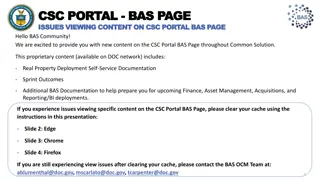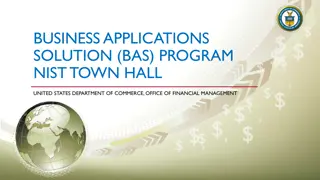
Exploring EAP Course Principles and Interactions with Context
Discover the essence of EAP course principles and the dynamic interactions with context through a comprehensive exploration. Uncover hidden principles, engage in scholarly conversations, and navigate institutional constraints while focusing on pre-sessional preparations.
Download Presentation

Please find below an Image/Link to download the presentation.
The content on the website is provided AS IS for your information and personal use only. It may not be sold, licensed, or shared on other websites without obtaining consent from the author. If you encounter any issues during the download, it is possible that the publisher has removed the file from their server.
You are allowed to download the files provided on this website for personal or commercial use, subject to the condition that they are used lawfully. All files are the property of their respective owners.
The content on the website is provided AS IS for your information and personal use only. It may not be sold, licensed, or shared on other websites without obtaining consent from the author.
E N D
Presentation Transcript
Developing & articulating Developing & articulating EAP course principles EAP course principles 21.05.2021 21.05.2021
1 BAS, accreditation outlook and seeing into blindspots Durham accreditation 2008 papering over the cracks Durham accreditation 2012 warts and all
2 Articulating course principles Our story Seeing value behind the box ticking Discovering your hidden / unarticulated principles (And allowing yourselves to be challenged on these)
3 Interactions with Context Affordances of context shape flavours of EAP and course principles Professional freedoms - Relative freedom to teach and assess as we see fit - Relative freedom to engage in scholarship and community conversations >> These shape how a view of EAP evolves
3 Interactions with Context Affordances of context shape flavours of EAP and course principles Institutional constraints: - Student demographics (mostly PG) - IELTS scores: relatively high >> These are the very real contextual influences that both EAP units and BAS Assessors need to engage with seriously
4 Focus on Pre-Sessional Selected examples Explicit, overarching principle: Your primary reason for coming to Durham is to join an academic department to deepen your knowledge and skills. We see you, therefore, not just as language students but also as junior scholars. Your academic work starts now.
4 Focus on Pre-Sessional Selected examples Leading then to (e.g.): We aim to challenge you academically, as well as linguistically [ ] [ ] Pre-Sessional is preparation for the workload of higher-level study[ ] The [course] often mirrors the academic process that many of you will follow in your department [ ]
4 Focus on Pre-Sessional Selected examples In need of (constant) interrogation: [ ] You will also be introduced to the academic expectations and conventions of your degree subject area.
4 Focus on Pre-Sessional Selected examples In need of ongoing interrogation and finishing the thought : We cannot prepare you for everything your department may require of you. We therefore believe in developing: The ability to analyse particular text structures so that you can analyse any text structure Strategies for dealing with academic content (knowledge gained from written texts, through lectures or through peer discussion)
5 Focus on In-Sessional Academic Dev. For Students Explicit, overarching principles: Effective academic communication and management of personal study strategies is important to success and wellbeing for all students, regardless of background. All Durham students can potentially benefit from academic development work with ADS staff, therefore [ ] [ ] ADS seeks to demystify these often hidden rules of the game [ ]
5 Focus on In-Sessional Academic Dev. For Students Principles that face different audiences: ADS provision is, wherever possible, experiential. Sessions are grounded in analysis of texts, practical exercises, discussion tasks and opportunities for practice. Learning thus extends beyond talking about to experience of
5 Focus on In-Sessional Academic Dev. For Students Principles that face different audiences: Language work is often bound up with knowledge work. All students, even those for whom English is a primary language, can benefit from thinking about language choices in their academic writing
5 Focus on In-Sessional Academic Dev. For Students Principles reminding us of hidden values in what we do: Generic skills and academic writing sessions have value for many students beyond advertised learning outcomes: Community; solidarity; rapport; emotional engagement; non-judgmental environments; open- minded respect for difficulties; and the safety to be vulnerable. Staff should bring this understanding to their pedagogies;
5 Focus on In-Sessional Academic Dev. For Students In need of a conversation, recrafting and simplifying: Approaching design and teaching work from an orientation to disciplinary knowledge practices is likely to be a rich means to engage with students and their needs, whether in more general Academic Skills or more specific Collaborations sessions. Disciplinary cultures shape knowledge practices shape texts shape language choices (and somewhat vice versa)
6 Wrap-up Course principles not just for Christmas Embedded, ongoing, evolving not just for Baleap accreditation visit A critical orienting point for staff, curriculum and pedagogy And more recently, realising also: Principles are a valuable resource that can serve multiple, wider needs
Relevant BAS criteria/ documentation Statement of principles of course design (Appendix 8 Checklist of documentation, BAS Handbook, p.34) 5.2 Course Management (BAS Handbook, p.15) 5.2.4 Teaching staff will be given an induction, which includes the principles on which the Course is designed, materials and resources available, and assessment. 5.3 Course Design (BAS Handbook, p.17) The Course will adhere to the principles of needs-driven, genre- informed syllabus design and assessment to enable students to acquire the knowledge, skills and attributes required for successful study in further or higher education. Specifically: 5.3.1 The Course will be designed according to clearly articulated principles of language learning and the development of academic literacy in relation to the needs of students in English-medium academic contexts. 5.3.3 The Course syllabus will have an explicit organising principle with a coherent set of components which allow for progression, recycling and transfer of language knowledge, academic literacy skills and study competence to target academic contexts.
Developing and articulating EAP course principles (BAS session, May) Being able to articulate the principles underpinning your EAP course and materials design is important in a number of ways. Primarily, it enables a shared conversation and understanding among staff about the values that shape pedagogy. This can inform teacher induction, curriculum development and staff development. For this reason, articulating course principles is one key area of the Baleap Accreditation Scheme criteria. This session will illustrate and compare course principles from a pre-sessional and in- sessional programme in the same institution. We focus in particular on how both local context and extensive collaboration have shaped these principles iteratively over time. The session will be of benefit for institutions new to the Accreditation Scheme and for others who may wish to revisit their principles and how these are embedded in provision.

